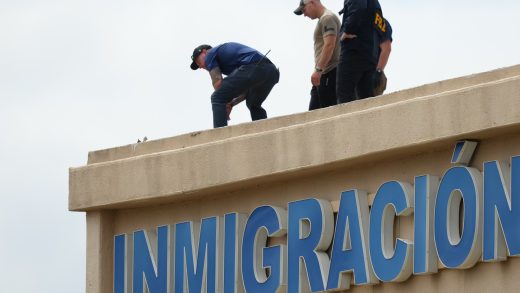NEWYou can now listen to Fox News articles!
The international spotlight recently turned to crime in Egypt when a pharaoh’s priceless bracelet was stolen from a Cairo museum and melted down – forever lost to history.
The artifact once belonged to Pharaoh Usermaatre Amenemope, a ruler from the Third Intermediate Period.
Dating back 3,000 years, the bracelet was stolen by a specialist at the Egyptian Museum’s restoration laboratory and sold for around $4,000 this month.
ARCHAEOLOGISTS DISCOVER UNTOUCHED TOMB LINKED TO KING MIDAS’ DYNASTY: ‘HIGH LEVEL OF WEALTH’
Authorities tracked down all parties involved – including the jewelers and foundry workers who touched the bracelet – and arrested them, but not in time to save the precious object.
Though this was not directly a tourist-targeted incident, the incident has raised concerns about crime in Egypt – and might make some rethink upcoming trips to the Gift of the Nile.
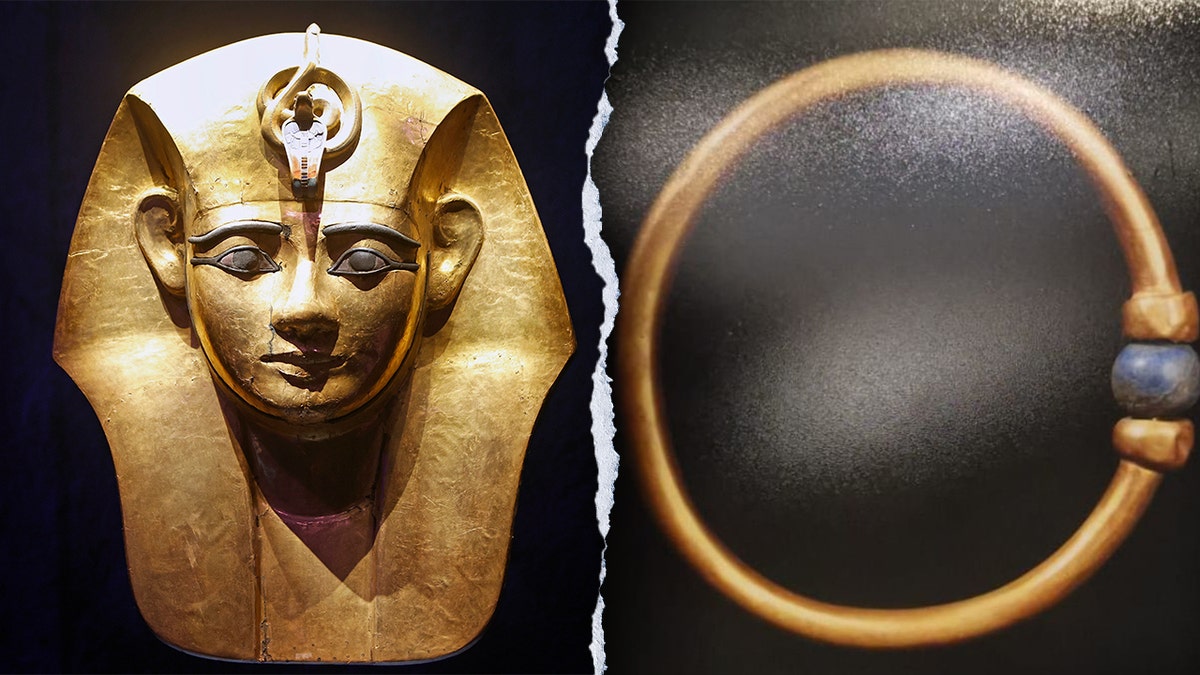
Egyptian authorities recently announced the theft of a gold and lapis lazuli bracelet once owned by Pharaoh Amenemope. (Chesnot/Getty Images; Egyptian Ministry of Tourism and Antiquities)
Fox News Digital spoke to experts about how to stay safe in Egypt – here’s what they said.
Security expert’s take: Stay alert
To American eyes, the sale of Amenemope’s bracelet for around $4,000 seems a shockingly low sum – but in Egypt, that amount is worth a fortune.
A 2023 report from CAPMAS, Egypt’s official national statistics agency, said the average monthly salary for public and private sector employees was around 5,005 Egyptian pounds per month – less than $160 U.S. dollars.
Threat management expert Spencer Coursen told Fox News Digital that poverty in Egypt creates “an environment in which opportunistic crime thrives.”
TOURISTS FACE DANGEROUS ‘CRUSH-AND-GRAB’ PICKPOCKET SCHEMES IN MAJOR CITY
He said, “For many locals, hustling tourists is seen less as ‘crime’ and more as ‘survival.’ This is why visitors often experience aggressive street vendors, taxi scams or ‘guides’ demanding tips after offering unsolicited help.”
A former U.S. Army Ranger and founder of Coursen Security Group, Coursen said tourists need to be on high alert against pickpocketing, scams, overcharging and harassment – particularly street harassment against women.
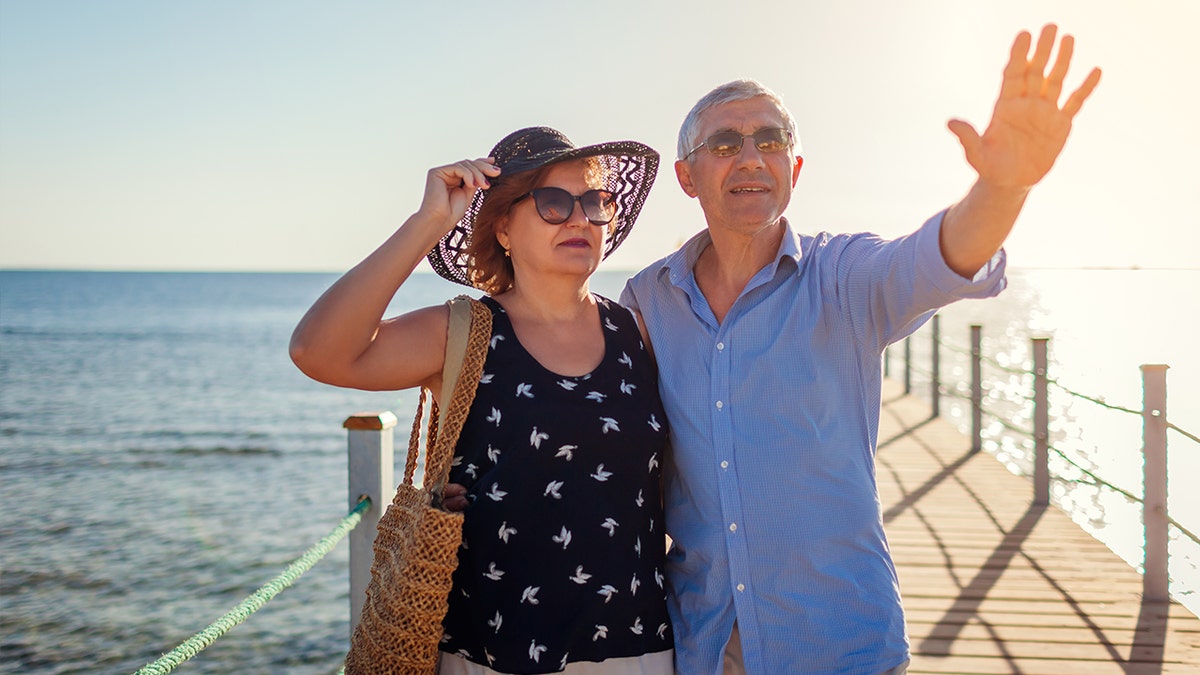
Experts warn that tourists in Egypt are more likely to face scams and harassment than violent crime. (iStock)
“Pickpocketing in crowded markets, taxi overcharging and aggressive sales tactics are much more common than armed robbery or assault,” the Texas-based expert said. “Egypt also has unique risks tied to regional instability and terrorism, particularly in the Sinai Peninsula and occasionally in major cities.”
He went on, “Most of the time, these risks are generally targeted at security forces or political symbols rather than tourists. Still, they shape the overall security environment in ways that make Egypt distinct.”
ARCHAEOLOGISTS UNCOVER MULTISTORY BUILDINGS IN ONCE-THRIVING CITY LOST TO TIME
Egyptian police are plentiful, the security expert noted, but they’re primarily focused on deterring larger threats like terrorism — making their effectiveness “mixed” when it comes to petty crime against tourists.
“The country’s security forces operate in a system in which corruption, bureaucracy and low pay limit accountability,” said Coursen. “Small bribes are frequently used to expedite processes or avoid hassle and are not uncommon.”
“The safest traveler is one who looks confident, maintains boundaries and knows when to say no.”
“This doesn’t mean visitors are unsafe, but it does mean enforcement isn’t always as consistent or impartial as what Western travelers might expect.”
Rather than rely on police, tourists should sharpen their street smarts and avoid dicey situations.
“Westerners in Egypt are less likely to face violent threats and more likely to face persistent distractions,” he said.
ANCIENT CHRISTIAN CHURCH REVEALS MYSTERIOUS 1,600-YEAR-OLD WARNING TO NONBELIEVERS: ‘ONLY THE RIGHTEOUS’
“The safest traveler is one who looks confident, maintains boundaries and knows when to say no.”
Coursen added that tourists should carry color copies of their passports, small denominations of change rather than credit cards, and medication for food-related illnesses, as water quality is less reliable compared to that of the U.S.
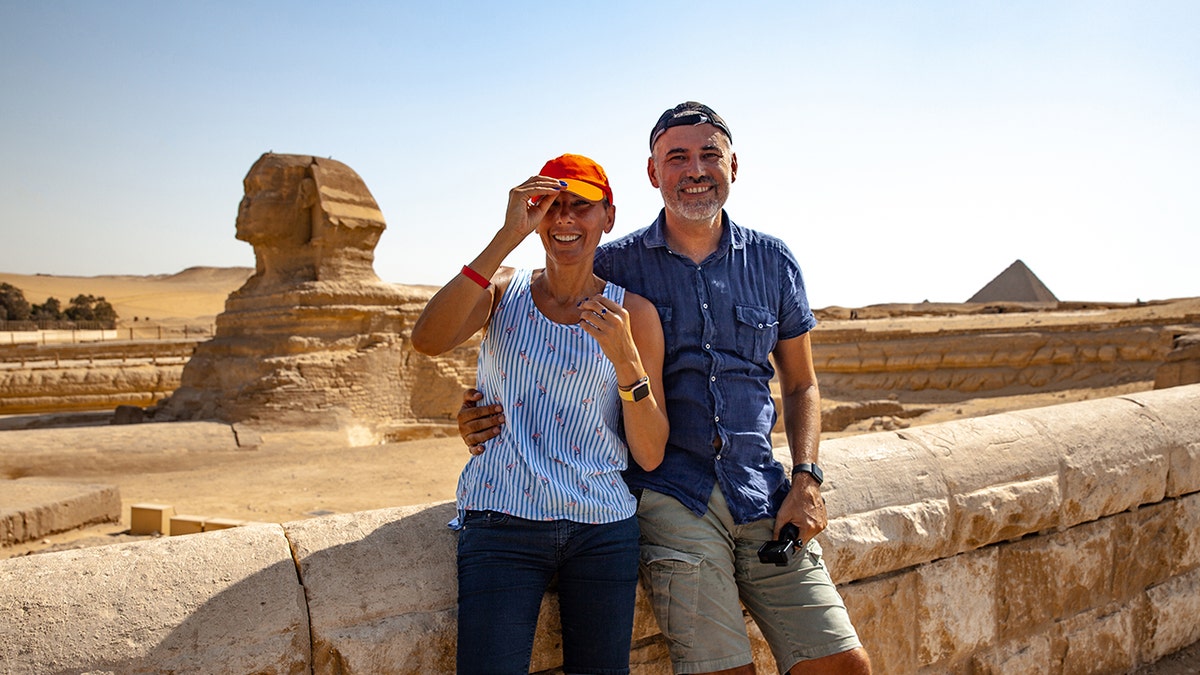
Security professionals say tourists stand out in Egypt, making flashy jewelry or luxury items risky choices. (iStock)
“Egypt rewards those who arrive informed, alert and adaptable,” he said. “Avoid obvious risks, prepare for the predictable challenges, and you’ll be free to enjoy one of the most extraordinary destinations on earth.”
Coursen’s 4 main takeaways
The security expert boiled down his advice to four key points.
1. Stick to populated, well-lit areas, especially after dark. Avoid empty alleys and isolated spaces, where tourists become easy targets.
2. As a Westerner, you will already stand out, so don’t add unnecessary attention with flashy jewelry, designer handbags or revealing clothing.
ANCIENT EGYPTIAN PARTY-TOWN BUILDING AND RELICS PULLED OUT IN OCEAN DISCOVERY
3. Lead with “No, thank you.” Many scams begin when a tourist agrees to accept a presumed kindness over something trivial, which then escalates into a demand for money.
4. Being mindful of local customs, plus how you dress, how you negotiate and how you interact will not only help you to avoid conflict; it will also earn you local respect.
Other expert opinions
Bobby Laurie, a Washington, D.C.-based travel expert, told Fox News Digital he “never felt unsafe while touring Egypt.”
The former flight attendant said he felt secure in his travels to many different regions and cities in Egypt – but he did caution that Cairo is especially busy and congested. He compared the overpopulation and condensed cities to what he’s seen in Central America.
“One of the things I was not prepared for … is the culture around the merchants selling items outside of temples and other attractions.”
“One of the things I was not prepared for — and to me, this could be something that makes tourists uneasy and possibly feel unsafe — is the culture around the merchants selling items outside of temples and other attractions,” he said.
“The merchants were everywhere, around you, in your face. Some pushed and pulled, hoping to get you in their store.”
For more Lifestyle articles, visit foxnews.com/lifestyle
“There were many, many merchants outside each and every tourist attraction, and they are very aggressive,” he added. He compared it to being a celebrity hounded by paparazzi.
“You quickly learn that this is just the way it is, but at first, it’s alarming,” said Laurie. “The intensity varied at each stop, and this is one of those situations where you’d want to watch your belongings just because your attention is constantly being diverted.”
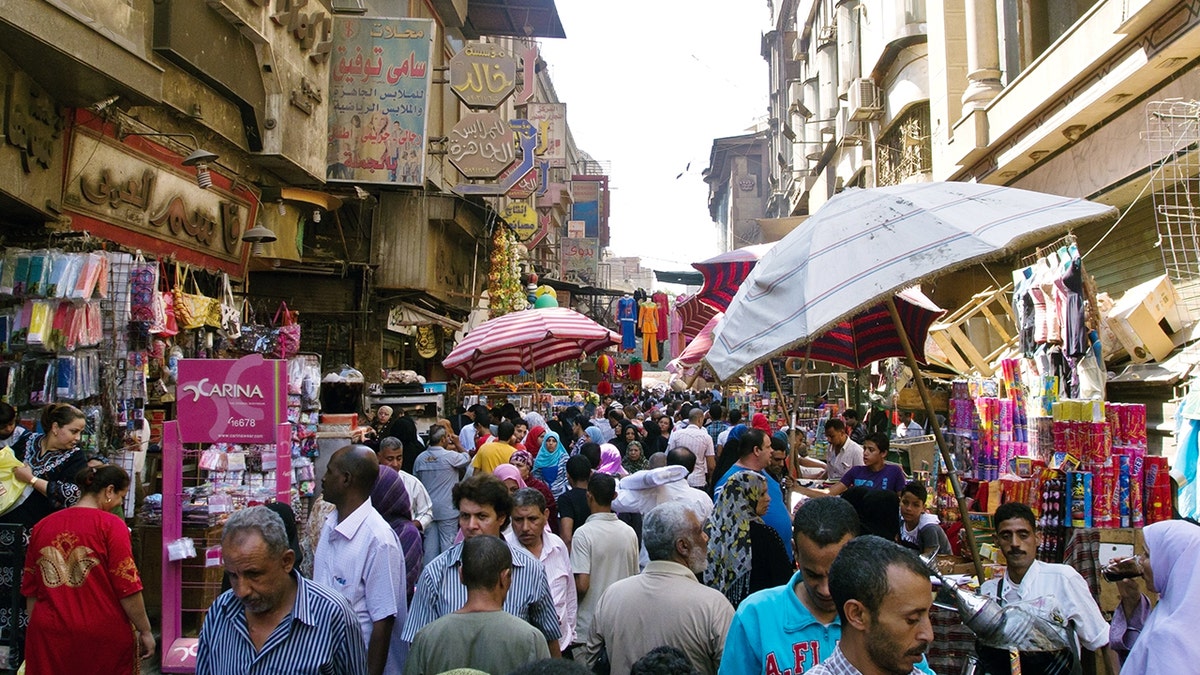
Tourists should stay in well-lit, populated areas and avoid situations that create easy targets for criminals. (iStock)
He also said tourist groups tend to have armed security around them — bringing some assurance to those who have booked tour guides.
“From the looks of it, it would appear unsafe because why would this officer be with you?” Laurie observed.
For more Lifestyle articles, visit foxnews.com/lifestyle
“However, most of them are there to assist tourists with navigating the city, assist with crossing roads …. The lines on roadways are just for show! In Egypt, they mean nothing.”
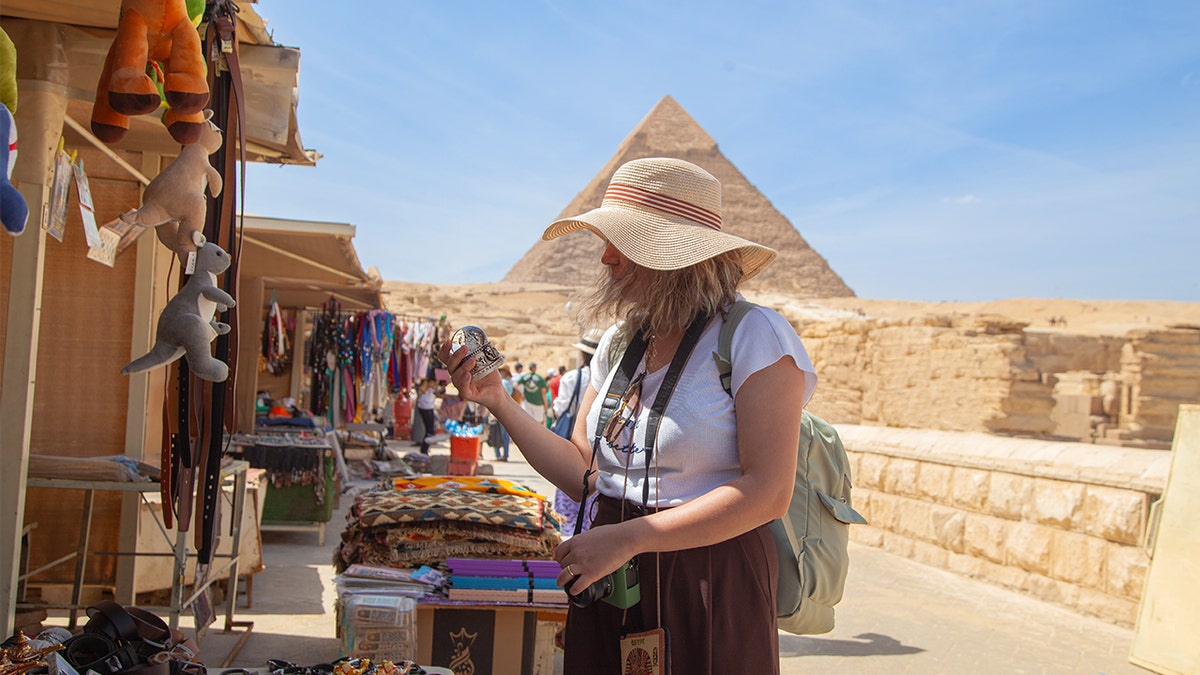
“There were many, many merchants outside each and every tourist attraction, and they are very aggressive,” said one travel expert (not pictured). (iStock)
Katy Nastro, a spokesperson for the Colorado-based travel company Going, confirmed to Fox News Digital that main issues in Egypt include haggling, aggression from vendors and unwanted attention toward women.
The travel expert urged tourists to keep their eyes out for law enforcement, including those that have “Tourism and Antiquities Police” badges at tourist sites.
CLICK HERE TO GET THE FOX NEWS APP
“They are based at all major tourism sites, and can be reached by dialing 126,” advised Nastro.


